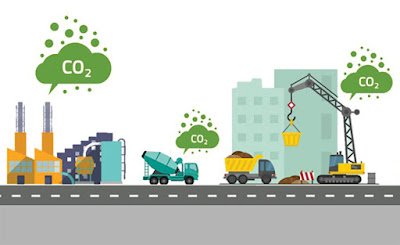Climate Change and Carbon Emissions Reduction
Climate change is one of the biggest threats facing our planet today. It is caused by releasing greenhouse gases, primarily carbon dioxide, into the atmosphere. These gases trap heat from the sun and cause global temperatures to rise, leading to a host of negative consequences such as sea level rise, more extreme weather events, and loss of biodiversity. In order to mitigate the effects of climate change, it is essential to reduce carbon emissions. This blog will explore the importance of carbon emissions reduction and the various strategies that can be employed to achieve this goal.
Why is Carbon Emissions Reduction Important?
Carbon emissions reduction is crucial because it directly addresses the root cause of climate change. By reducing the number of greenhouse gases in the atmosphere, we can slow down the pace of global warming and limit its negative impacts. This is essential because climate change has far-reaching consequences for people and the planet. It can lead to more frequent and severe natural disasters, such as hurricanes, floods, and wildfires. It can also disrupt food systems and lead to food scarcity, as well as threaten the livelihoods of millions of people who rely on the natural environment for their survival. Finally, climate change can also have long-term effects on ecosystems, leading to biodiversity loss and irreversible damage to our natural world.
Strategies for Carbon Emissions Reduction

There are several strategies that can be employed to reduce carbon emissions. These include:
Transition to Clean Energy: One of the most effective ways to reduce carbon emissions is to transition from fossil fuels to clean energy sources such as wind, solar, and hydropower. This can be achieved through policies that incentivize the adoption of renewable energy, such as tax credits or subsidies for renewable energy projects.
Energy Efficiency: Another way to reduce carbon emissions is to improve energy efficiency. This can be done by upgrading buildings and homes with energy-efficient appliances and insulation, as well as through the use of smart grids and energy-efficient transportation systems.
Carbon Capture and Storage: Carbon capture and storage (CCS) is a process that involves capturing carbon dioxide emissions from power plants and other industrial sources, and storing them underground. This technology is still in its early stages of development, but it has the potential to significantly reduce carbon emissions from the energy sector.
Carbon Pricing: Carbon pricing is a policy that puts a price on carbon emissions through a carbon tax or a cap-and-trade system. By putting a price on carbon, businesses and individuals are incentivized to reduce their emissions and invest in clean energy technologies.
Sustainable Land Use: Sustainable land use practices can also play a role in reducing carbon emissions. This includes practices such as reforestation, conservation agriculture, and the use of sustainable forestry practices.
Challenges to Carbon Emissions Reduction
Despite the importance of carbon emissions reduction, there are several challenges that need to be addressed in order to achieve this goal. These include:
Political Will: One of the biggest challenges to carbon emissions reduction is political will. In many cases, political leaders may be reluctant to take action on climate change due to concerns about the economic impact of carbon reduction policies.
Cost: Another challenge to carbon emissions reduction is cost. Many of the strategies for reducing carbon emissions, such as transitioning to clean energy or implementing carbon capture and storage, can be expensive.
Technological Barriers: There are also technological barriers to carbon emissions reduction. For example, while renewable energy sources such as wind and solar are becoming increasingly cost-effective, they still face challenges in terms of scalability and intermittency.
Social Barriers: Finally, there are social barriers to carbon emissions reduction. Many individuals may be reluctant to adopt sustainable practices or invest in renewable energy due to a lack of awareness or understanding of the benefits.
Conclusion
In conclusion, carbon emissions reduction is essential to keep the planet safe and conserve future generations.

